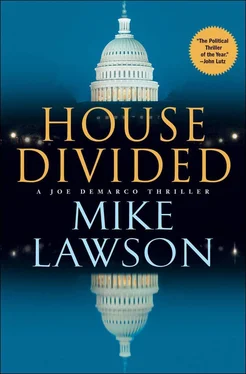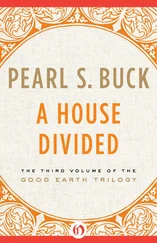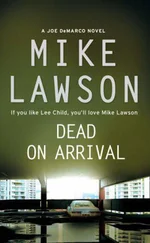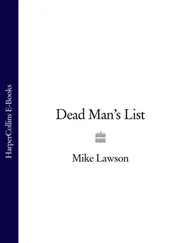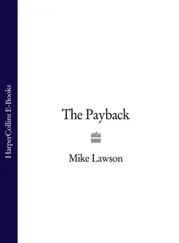Mike Lawson - House Divided
Здесь есть возможность читать онлайн «Mike Lawson - House Divided» весь текст электронной книги совершенно бесплатно (целиком полную версию без сокращений). В некоторых случаях можно слушать аудио, скачать через торрент в формате fb2 и присутствует краткое содержание. Жанр: Триллер, на английском языке. Описание произведения, (предисловие) а так же отзывы посетителей доступны на портале библиотеки ЛибКат.
- Название:House Divided
- Автор:
- Жанр:
- Год:неизвестен
- ISBN:нет данных
- Рейтинг книги:3 / 5. Голосов: 1
-
Избранное:Добавить в избранное
- Отзывы:
-
Ваша оценка:
- 60
- 1
- 2
- 3
- 4
- 5
House Divided: краткое содержание, описание и аннотация
Предлагаем к чтению аннотацию, описание, краткое содержание или предисловие (зависит от того, что написал сам автор книги «House Divided»). Если вы не нашли необходимую информацию о книге — напишите в комментариях, мы постараемся отыскать её.
House Divided — читать онлайн бесплатно полную книгу (весь текст) целиком
Ниже представлен текст книги, разбитый по страницам. Система сохранения места последней прочитанной страницы, позволяет с удобством читать онлайн бесплатно книгу «House Divided», без необходимости каждый раз заново искать на чём Вы остановились. Поставьте закладку, и сможете в любой момент перейти на страницу, на которой закончили чтение.
Интервал:
Закладка:
“I don’t understand,” Bradford said. “Why would anyone be asking about those two soldiers?”
“I did some backtracking after Gilmore called me. I discovered that after Sergeant Witherspoon-uh, died, that-”
“Witherspoon?” Bradford asked.
Levy didn’t speak for a moment and Bradford could sense Levy’s disapproval. “Sergeant Witherspoon,” Levy said, “was the soldier driving the ambulance, the man who was-”
“Oh, yes,” Bradford said. “I’m sorry, John,” he added, and he truly was. He was embarrassed he’d forgotten Witherspoon’s name, a man who died in the service of his country.
“I found out that someone claiming to be from the Arlington Police Department took Witherspoon’s fingerprints before his body was taken from the hospital,” Levy said.
“So what?” Bradford said. “He was a John Doe and the police wanted to identify him.”
“That’s possible. But if the cops had taken his fingerprints, they would have drawn a blank. Witherspoon’s fingerprints are not in any criminal database, and if Arlington tried to access military fingerprint files, they still would have come up empty. As you know, Witherspoon’s prints are flagged, I would have been contacted, and his name wouldn’t have been released to the police without my approval.”
“John, I’m confused,” Bradford said. “What are you saying?”
“I’m saying the only way the Arlington cops could have identified Witherspoon through his fingerprints was if they had contacts at the Pentagon or the ability to hack into a military data base and override the don’t-release tag on Witherspoon’s name. The detective who was assigned to the case before Hopper took it away from him is ex-military, but he was just a grunt in the marines more than twenty years ago. I think it’s highly unlikely, sir, that this detective or anyone associated with him could have identified Witherspoon. So the big question is this: How did they make the leap?”
“The leap?”
“Yes, sir. What caused them to take the next step? What made them start asking questions about the cadre at Fort Myer after they identified Witherspoon?”
“Maybe they were just checking to see if Witherspoon had accomplices. Looking at other men in his unit would be a logical step.”
“I don’t think so,” Levy said. “The ambulance he stole was recovered when it was wrecked, it wasn’t involved in any crime the police know of, and I doubt there’s some big auto-theft ring in the area dealing in stolen ambulances. No, sir. The cops just wouldn’t have dug this hard for one stolen ambulance.
“General, I don’t know what’s going on here. All I know is that Witherspoon and the two men I used for the operation have been identified and someone is asking questions.”
Bradford could feel a bubble of panic began to form in his chest, which he quickly suppressed-he had never panicked in his life-but there was reason for concern. In the past, there had never been a direct connection between him and Levy’s operations-other than Levy himself, of course, and Levy would never talk. But this thing with Russo was different. He couldn’t separate himself from Russo’s death if the reason for his death were to become known. He started to rise from his chair to… to what? To tell Levy what was at stake? He didn’t need to tell John Levy that.
But before he could say anything, Levy said, “I’m pursuing a lead, sir. I think I can find out who took Witherspoon’s fingerprints.”
“Pursue it fast, John,” Bradford said. “Find out what the hell’s going on.”
10
The lady in charge of the hospice where Paul Russo had worked was a plain-faced middle-aged woman with short gray hair, no makeup, and a prim set to her mouth. She wore a blue skirt with a hem that fell a good two inches below her chunky knees, a short-sleeved white blouse, and she had a small cross on a thin gold chain around her neck. She made DeMarco think of a nun in civilian clothes. Her name was Jane Sealy.
DeMarco explained to Jane that he was trying to find his cousin’s will so he could deal with his estate. At the mention of Paul’s name, Jane crossed herself and then basically told him that Paul had been the saint who walked among us: extremely religious, gave his time and money to charities, loved his fellow man, wouldn’t hurt a fly, and his patients and their families loved him. There was no one better suited, more compassionate, more caring, Jane said, when it came to helping people die.
DeMarco was sure all this was true, but he’d always thought that Paul had been a rather boring, mousy guy. Even as a kid, he hung back, awkward and shy, barely saying a word. DeMarco recalled the one time he had lunch with Paul when Paul first arrived in Washington. His cousin didn’t like sports, nor did he play any. He rarely watched television and didn’t go to many movies. He had no interest in politics whatsoever. So after they had discussed the few relatives they had in common, they had very little to talk about. At one point, Paul told him he was looking for a good congregation to join and asked where DeMarco attended church-and DeMarco lied. He said he didn’t attend any particular church, that on Sunday he just went wherever the mood struck him. The truth was, he only went to church for weddings and funerals. The consequence of all this was that it had been an uncomfortable lunch filled with long periods of silence, and DeMarco was relieved when it was over. But based on everything Paul’s landlord and his boss had said, it sounded as if his cousin had been a good man and DeMarco regretted that he’d never made the effort to know him better.
He asked Jane if he could look through Paul’s desk and his computer to locate a will or the name of Paul’s lawyer, but when he said this Jane told him, quite firmly, that she wouldn’t allow him to do that unless he had some authority, like documentation confirming he was the executor of Paul’s estate. DeMarco pointed out the catch-22: he wouldn’t know if he was the executor of Paul’s estate unless he could find Paul’s will, but he couldn’t find Paul’s will because he couldn’t prove he was the executor of the estate.
“Well, I’m sorry about that,” Jane said, “but you’re a complete stranger to me and I can’t let you go pawing through his desk. And anyway,” she added, “the FBI took his computer.”
“They took his computer?”
“Yes.”
“When was the FBI here?” DeMarco asked.
“A couple of hours ago.”
“An agent named Hopper?”
“Yes. He had a warrant and he looked through Paul’s desk. And he took his computer.”
It looked like all this had happened while DeMarco was at Paul’s place.
“Okay,” DeMarco said, “but would you mind looking through Paul’s desk for me? All I’m trying to do is settle his estate.”
“Yes. I have to clean out his desk and if I come across a will or a reference to one, I’ll let you know. But I can tell you that Paul wasn’t the sort of person who did personal business at work, and I doubt if he kept any of his private correspondence here.”
DeMarco was about to leave but said, “Let me ask you something. Did Paul have access to drugs?”
“Of course,” Jane said, and then she explained.
People under a hospice’s care were not given medications to stop them from dying or to even slow down the pace of whatever was killing them. Nonetheless, they had mini-pharmacies in their homes: drugs to help them sleep, to help move their bowels, to help reduce their pain.
“Things like Valium?” DeMarco asked.
“Why are you asking about this?” Jane said.
“Because the FBI thinks Paul may have been stealing meds from his patients and selling them. Didn’t Hopper tell you that?”
Читать дальшеИнтервал:
Закладка:
Похожие книги на «House Divided»
Представляем Вашему вниманию похожие книги на «House Divided» списком для выбора. Мы отобрали схожую по названию и смыслу литературу в надежде предоставить читателям больше вариантов отыскать новые, интересные, ещё непрочитанные произведения.
Обсуждение, отзывы о книге «House Divided» и просто собственные мнения читателей. Оставьте ваши комментарии, напишите, что Вы думаете о произведении, его смысле или главных героях. Укажите что конкретно понравилось, а что нет, и почему Вы так считаете.
